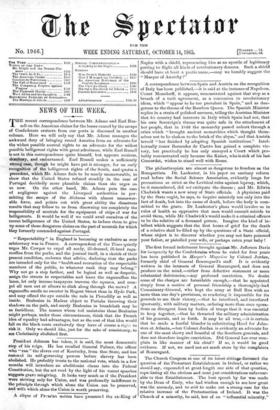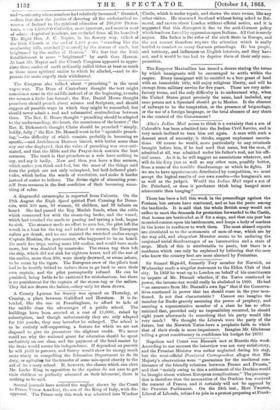The Church Congress at one of its latest sitting discussed
the question of the Protestant Establishment in Ireland, or rather we should say, expounded at great length one side of that question, repu listing all the obvious and most just considerations unfavour- able to that Establishment. The best speech by far was made by the Dean of Emly, who had wisdom enough to see how great was the anomaly, and to wish to make out a strong case for the relative increase of the Protestantism of Ireland. It was the Church of a minority, he said, but of an "influential minority," and "a minority where numbers had relatively increased." Granted, —does that show the justice of devoting all the ecclesiastical re- venues of Ireland to the spiritual education of 700,000 Protes- tants, sy'len 4,500,000 Catholics, more ignorant, and snore in need of educa-xl spiritual teachers, are excluded from all its benefits? The Right Hon. J. C. Napier, in his flowery way, talked of the Irish Church at the end of 1,400 years "standing like the everlasting hills, scorched [? scarred] by the storms of earth, but brightened by the smiles of Heaven." We fear that the I; ish Establishment is more " brightened " by earth than Heaven. At least Mr. Napier and the Church Congress appeared to appre- ciate those smiles of earth ordinarily called tithes at least as much as those more spiritual smiles to which he alluded,—and to de- precate far more eagerly their withdrawal.































 Previous page
Previous page